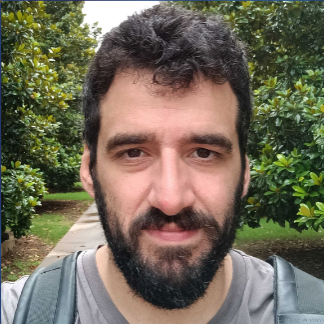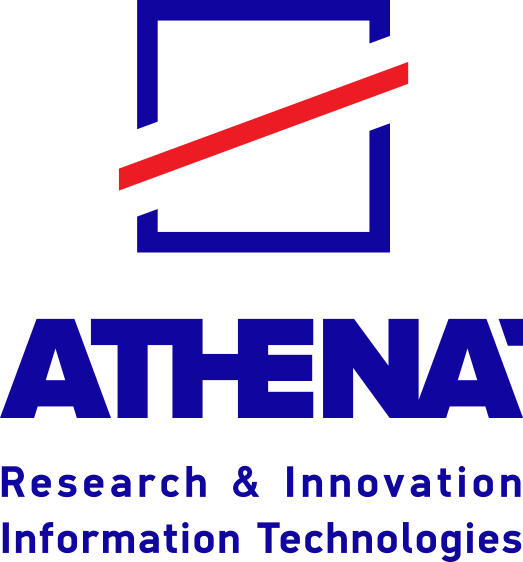Archimedes Welcomes our Post Doctoral Researchers
The ARCHIMEDES Research Unit of the ATHENA Research Center is pleased to announce its collaboration with nine (9) Post Doctoral Researchers. Our Post Doctoral Researchers will be conducting high level research in the areas of Artificial Intelligence, Data Science and Algorithms and will also be providing guidance, insight, talent and ideas to our PhD Fellows.
We are excited to welcome them in our team, and we wish them a good start in their studies and their work.
Our team will continue to grow as we expect more PIs, Post-Docs and PhDs to join us in the coming future, to strengthen our presence as an AI Excellence Hub in Greece where the international research community connects, groundbreaking ideas thrive, and the next generation of scientists emerges, shaping a brighter future for Greece and the world.
Meet our Post Doctoral Researchers
Vasilis Apidopoulos |
|
|||||||
 |
Research InterestsVassilis’ research interests lie in the field of optimization and its interface with learning theory, dynamical systems and inverse problems. His research will focus on non-convex (non-concave) optimization and on implicit regularization for learning problems. Short BioVassilis is a postdoctoral researcher at the Archimedes AI unit within the Athena research center. After finishing his undergraduate studies in the Department of Mathematics of Aristotle University of Thessaloniki, he received his master’s degree in applied mathematics (2016) from the University Claude Bernard Lyon 1 - École normale supérieure de Lyon and his PhD degree (2019) from the University of Bordeaux, under the supervision of Charles Dossal and Jean-François Aujol. Before joining Archimedes AI, he was a postdoctoral researcher (2019-2023) at the LCSL unit of the MaLGa research center in the University of Genoa, working with Silvia Villa and Lorenzo Rosasco. |
|||||||
Giorgos Bouritsas |
|
|||||||
 |
Research InterestsGiorgos’ research lies within the fields of Geometric and Graph Deep Learning and involves the design and theoretical analysis of data-driven methodologies for geometric and symmetric data, such as complex networks, physical systems and 3D objects. His contributions and interests lie in two conceptual axes: the theoretical underpinnings of graph/geometric neural networks (expressive power, inductive biases) and graph/geometric data synthesis (generative models and compression). As part of his appointment at Archimedes, he aims to expand these axes towards problems of increasingly complex nature, in particular learning on multimodal, as well as dynamically evolving geometric data (e.g. multilayer and dynamic networks). Short BioGiorgos Bouritsas is a machine learning researcher and currently holds a postdoctoral fellow position with the Archimedes AI unit / Athena Research Center, working within the group of Prof. Yannis Panagakis. He obtained his PhD in computer science from Imperial College London (2023), under the supervision of Prof. Michael Bronstein and Prof. Stefanos Zafeiriou, and his MEng in electrical and computer engineering from the National Technical University of Athens (2017). Previously, he was a research scientist intern at Google Deepmind, a visiting PhD researcher at École Polytechnique Fédérale de Lausanne, a research associate at NCSR Demokritos and a visiting undergraduate student researcher at Universitat Politècnica de Catalunya. He has conducted basic and applied research on topics in the intersection of machine learning with other scientific fields, such as computer vision, network science and physics, and his work has been published in leading conferences (NeurIPS, CVPR, ICCV, ECCV) and journals (TPAMI). In addition, he regularly performs educational activities, such as tutorials and teaching postgraduate courses, while he provides academic service as a reviewer in machine learning conferences (e.g. ICLR, ICML, NeurIPS) and journals (e.g. TPAMI, TMLR), for which he has received outstanding reviewer awards. |
|||||||
Kostis Karapatanis |
|
|||||||
 |
Research InterestsKostis’s research interests include convex optimization, asymptotic behavior of dynamical systems, and their role in the foundations of machine learning. Short BioKostis Karatapanis was awarded the Benjamin Franklin Fellowship to attend the Ph.D. program at the University of Pennsylvania. There, he successfully completed his Ph.D. in Probability Theory, focusing on the asymptotic behavior of stochastic approximations under the guidance of Professor Robin Pemantle. He earned his Bachelor's degree in Mathematics at the University of Athens, specializing in Pure Mathematics.
|
|||||||
Danae Pla Karydi |
|
|||||||
 |
Research InterestsDanae's research interests include knowledge graphs, recommendation systems, social network analysis, data exploration, privacy, and machine learning. Specifically, her research will focus on areas such as fairness in ML, explainable RecSys, and knowledge graphs. Short BioDanae holds a Ph.D. in Computer Science from the National Technical University of Athens (“Leveraging social networks and knowledge graphs for discovering and recommending engaging and credible information”). She also holds a Diploma in Electrical and Computer Engineering (integrated master) from the School of Electrical and Computer Engineering of the National Technical University of Athens. From 2014 to 2022, Danae worked as a research staff member at the Information Management Systems Institute (IMSI) of the Athena Research Centre. During this time, she contributed to various projects involving designing and developing applications in recommendation systems, social network analysis, data exploration, and machine learning. Danae serves as a Member of the Editorial Board for the "Technical Annals", an international scientific journal in Engineering published by the Technical Chamber of Greece. |
|||||||
Iosif Lytras |
|
|||||||
 |
Research InterestsIosif's research interests include learning unknown distributions through sampling, Numerical Analysis of Stochastic Differential Equations and Optimization. Specifically, his research will focus on areas such as sampling with Langevin MCMC algorithms and generative diffusion models. Broader research interests include Concentration Inequalities, Random Matrix Theory and Mathematical Neuroscience and Classical Numerical Quadrature. Short BioIosif holds a PhD from the Department of Mathematics at the University of Edinburgh under the supervision of Professor Sotiris Sabanis. He has an undergraduate and a postgraduate degree from the Department of Mathematics of the NKUA. He has research experience around Langevin Monte Carlo algorithms and their applications in optimization and neural networks. His research has mainly focused on sampling from distributions where the log-gradient grows super-linearly. He has participated in the teaching of many undergraduate and postgraduate courses such as Probability, Infinite Calculus, Complex Analysis, Stochastic Analysis, Numerical Analysis of Differential Equations. He completed his 4-year undergraduate program in 3.5 years and graduated with honors in his undergraduate and graduate studies. During his PhD he was funded by the UK EPSRC throughout his studies. |
|||||||
Nicos Protopapas |
|
|||||||
 |
Research InterestsNicos' research interests revolve around the intersection of Computer Science, Artificial intelligence and Economics. His primary research will focus on topics of algorithmic game theory and mechanism design and their interaction with data-driven and machine-learning algorithms.. Short BioNicos holds a Diploma in Computer Engineering and Informatics and an MSc in Computer Science from the University of Patras, with an emphasis on theoretical foundations of Computer Science. He received his PhD from the University of Liverpool in 2022, working on mechanism design problems in environments where monetary transactions are impossible. Before joining the Archimedes Research Unit, he worked as a research assistant in research projects affiliated with the University of Southampton and the University of Patras.
|
|||||||
Ioannis Psarros |
|
|||||||
 |
Research InterestsIoannis' research interests include proximity problems, varying from the design of data structures for nearest neighbor queries to clustering problems. His research will focus on data-driven algorithms and data structures for proximity problems. Short BioIoannis Psarros received his BSc. degree in Informatics and Telecommunications from the National Kapodistrian University of Athens (NKUA), Greece, in 2013, his MSc. degree in Logic, Algorithms and Computation from NKUA, in 2015, and his PhD in Computer Science from NKUA, in 2019. Between 2019-2021, he was a postdoctoral researcher at the University of Bonn and an affiliated member of the Hausdorff Center for Mathematics. Between 2021-2023, he was a Scientific Associate at IMSI of Athena Research Center. Most of his work so far has been on designing solutions for nearest neighbor problems or clustering problems, which come with some form of theoretical guarantees, either in the form of complexity bounds or in the form of proof of correctness or both. |
|||||||
Akrivi Stamou |
|
|||||||
 |
Research InterestsAkrivi’s research interests include idiosyncratic language formations, Natural Language Processing, human-computer interaction, and computational clinical psychology. Short BioVivian Stamou holds a Ph.D. in Computational Psycholinguistics from the Department of Philology of the National and Kapodistrian University of Athens. She also serves as a Postdoctoral Researcher at the Archimedes Unit and as a Research Assistant at the Institute of Language and Speech Processing (ILSP/Athena Research Center). Her doctoral research focuses on detecting depression in the Modern Greek language, which was supported by a scholarship from the State Scholarship Foundation. Prior to her doctoral studies, Vivian pursued postgraduate education at the University of Stuttgart's Institute for Natural Language Processing (IMS), completing the MSc program in Computational Linguistics. She began her academic journey with undergraduate studies in Philology, specializing in Linguistics. Additionally, Vivian's team won the first prize in a Goethe Institute competition through their involvement in the 'ETHICAI=LABS' project, exploring the ethical dimensions of Artificial Intelligence. This success led to funding for the BLACKBOX AI research project, culminating in an artistic exhibition shedding light on gender discrimination within AI applications. |
|||||||
Stavros Bompolas |
|
|||||||
|
|
Research InterestsHis research interests are centered around computational linguistics and dialectology, particularly emphasizing the computational analysis and quantification of linguistic (dis)similarities among Greek dialects that have developed in contact with typologically diverse languages, including Italo-Romance and Turkish. Short BioStavros Bompolas obtained his PhD from the Philology Department (Linguistics Section) at the University of Patras in 2023, specializing in Computational Dialectology. He received the “Andreas Mentzelopoulos Scholarships for Postgraduate Studies at the University of Patras” (2020-2022) for his doctoral research. He holds a BA Honours (Rank: 5th out of 298) and a Master’s degree (Rank: 1st out of 28) from the same Department. Since 2014, he has been a research member at the Laboratory of Modern Greek Dialects (University of Patras), contributing to four research projects. His research has been disseminated through presentations at conferences and publications in proceedings, scientific volumes, and journals. Notably, a part of his postgraduate dissertation, titled “Lexical Self-Organization in the Acquisition and Processing of Modern Greek Conjugation: An Artificial Neural Network Approach”, was awarded the “Distinguished Young Paper Award” at the “3rd Italian Conference on Computational Linguistics” (CLiC-it 2016). |




